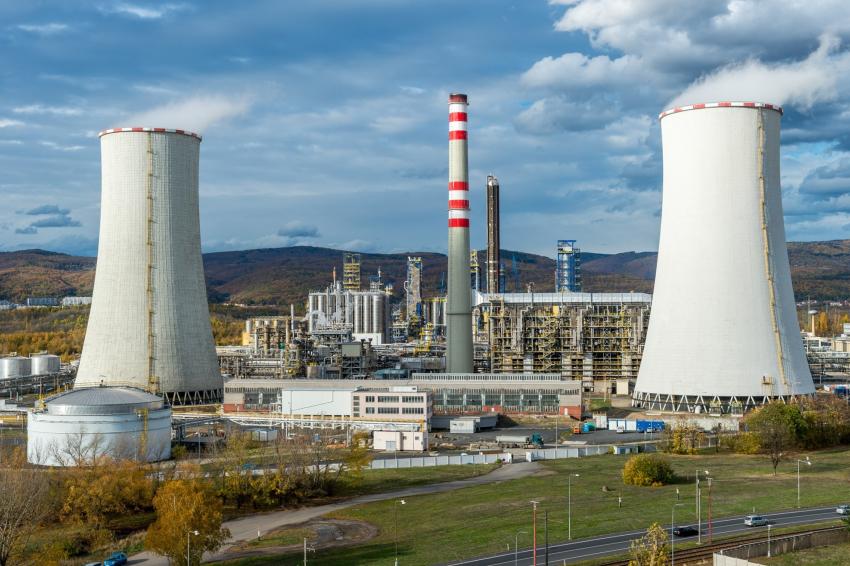Unipetrol Studies Chemical Recycling
11.03.2020 -
Czech refining and petrochemical company Unipetrol plans to build a pyrolytic unit for processing plastic waste at its plant in Litvinov. The company has embarked on a research project with the aim of possibly implementing chemical recycling of plastics into its standard production within the next three years.
“Our ambition is to chemically recycle waste plastic not only from our nearest surroundings, but probably from the entire Czech Republic and potentially from other parts of Central and Eastern Europe within several years,” said Tomáš Herink, board member of the Unipetrol Group.
The project’s objective is to develop a functional pyrolysis technology for reusing plastic and rubber from waste tires in the petrochemical industry. Pyrolysis, or thermal decomposition of materials at elevated temperatures, provides a high utilization ratio of liquid products that can subsequently be processed using refining or petrochemical technologies.
Ultimately, the waste plastic can be used to manufacture plastics such as PE, PP and PS, or the pyrolytic products can be added to processed raw materials to increase the production of motor fuels such as petrol and diesel fuel.
The technology for the pilot unit is being supplied by Norwegian company Vow via its French subsidiary ETIA. The company is licensing its patented Biogreen process that can convert biomass, plastic and waste into energy sources or renewable products.
According to the Ministry of Industry and Trade, the Czech Republic produces more than 400,000 t/y of plastic waste, of which roughly 37% is recycled and 18% is used as energy for heat and/or electricity generation. The rest – approximately 45% – is not used or recycled.
Herink said the research will aim to resolve several questions, such as improving the quality of liquid and gaseous pyrolytic by-products, how to store the liquid to avoid repeat polymerization, and how to transport it over longer distances. He added that Unipetrol will primarily be testing various types of input materials, single-type waste plastic and mixed types of plastic.
The project, dubbed Pyrekol, is being implemented in partnership with the Institute of Chemical Technology in Prague and the Unipetrol Centre for Research and Education. Costs will amount to 71.7 million Czech Koruna, or nearly $3.2 million.
The Technology Agency of the Czech Republic has contributed just over 50 million Czech Koruna within the framework of the TREND subsidy program. TREND aims to increase Czech companies’ competitiveness by supporting industrial research and experimental development projects, putting results into practice and offering them on the market.
The actual technology investment of 18 million Czech Koruna is being arranged outside the framework of the project, with support from the Ministry of Industry and Trade within the framework of the Enterprise and Innovations for Competitiveness program.
Many petrochemicals and plastics producers have entered the race to develop chemical recycling technologies. The list includes Finnish refining company Neste, styrenics producer Ineos Styrolution, German giant BASF, US olefins and plastics group LyondellBasell, UK energy company BP and leading polymer producer Borealis, among many others.





